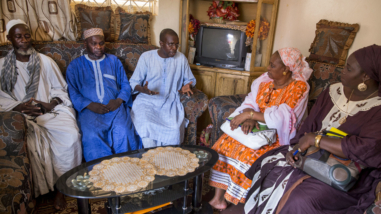Natural Resource Governance Institute
For An Operational Assessment
-
Amount$50,300
-
Program
-
Date Awarded8/6/2013
-
Term4 Months
-
Type of SupportProject
About the Grantee
Grantee Website
www.resourcegovernance.org
Address
88 Pine Street (Wall Street Plaza), Suite 540, New York, NY, 10005, United States
Grants to this Grantee
for general operating support
The Natural Resource Governance Institute promotes effective management of oil, gas, and mineral endowments to ensure that citizens of resource-rich countries benefit from these resources. At the country level, the institute works with local partners to provide training, technical assistance, and evidence to inform and improve policies and decisions about natural resource extraction and revenue allocation and use. The institute also contributes to strengthening international governance and transparency norms, notably the Extractive Industry Transparency Initiative and Open Government Partnership, and promotes uptake of those norms at the country level. The institute works in 12 resource-rich countries to accelerate the energy transition, ensure that governments get a good deal from natural resource contracts, minimize resource dependency, and address state capture. The institute also deepens implementation of the Extractive Industries Transparency Initiative requirements; promotes data use by civil society, media, and citizen groups for advocacy; and generates evidence to inform reforms of state-owned extractive companies. (Strategy: Inclusive Governance)
for the Natural Resource Charter project
Hosted by the Revenue Watch Institute, the Natural Resource Charter provides guidance to governments, companies, and civil society groups for improving the governance and management of oil, gas, and mineral resources. Organized as a set of principles drafted by expert researchers and practitioners, the Charter establishes a global standard of best practice and serves as a planning tool for improving the use of natural resource wealth. This phase of the project would focus on (1) updating and expanding the Charter’s policy recommendations; (2) developing a framework that resource-rich countries can use to assess their progress in implementing the Charter’s principles; and (3) supporting civil society groups advocating for the Charter’s adoption in their countries.
